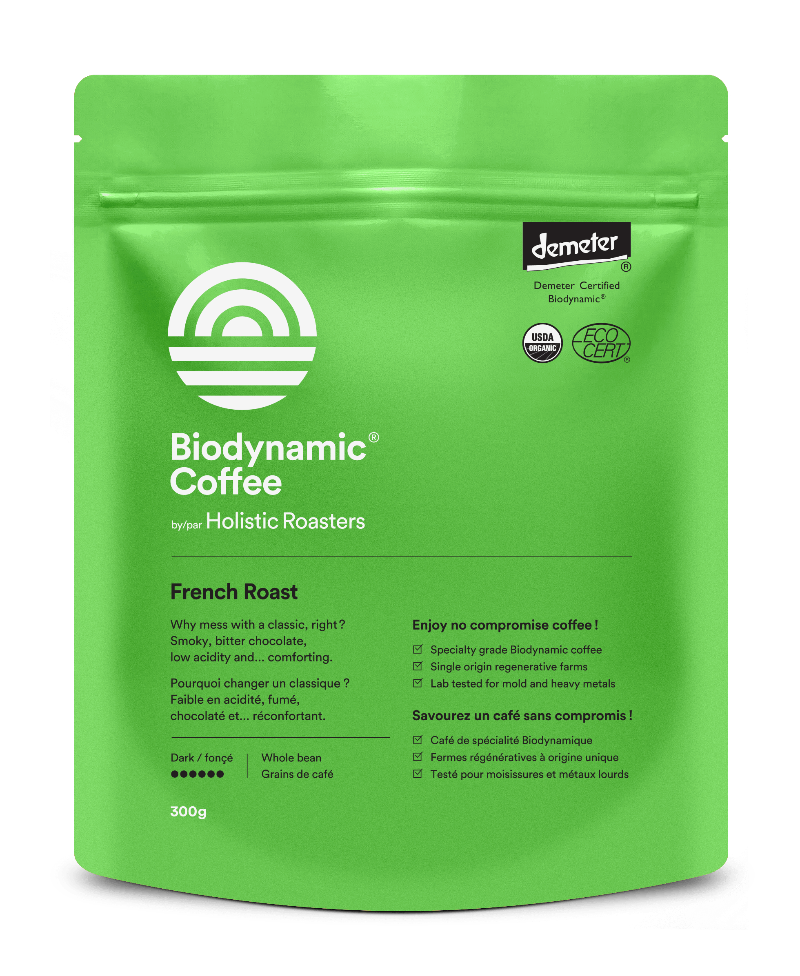Chlorogenic Acid & Coffee: Health Benefits Explained
Prefer to listen to this article?
The Quick Scoop
Chlorogenic acid (CGA) is a powerful polyphenol in coffee with impressive health benefits. Studies show it can help lower blood pressure, regulate blood sugar, and support heart health. Light roast coffee contains the highest concentration of this beneficial compound, with up to 188mg per cup!
Chlorogenic acid (CGA) is one of the primary polyphenols in coffee, and research links it to several powerful health benefits. In fact, it's one of the key reasons why coffee is increasingly regarded as a health-promoting beverage.
What is Chlorogenic Acid?
Chlorogenic acid is the most prevalent polyphenol in coffee, found in much higher concentrations than in other food sources. It's an ester of caffeic acid and L-quinic acid, giving coffee its antioxidant properties. Coffee's health benefits largely stem from this compound.
Compared to other foods, coffee stands out as an exceptional source of chlorogenic acid. Green tea contains roughly one-fifth the CGA found in light roast coffee, while fruits like apples and blueberries contain even less. This makes coffee unique as a dietary source of this beneficial compound.
Research suggests that the high concentration of CGA in coffee contributes significantly to its overall antioxidant capacity and may explain many of coffee's observed health benefits in epidemiological studies.
The Health Benefits of Chlorogenic Acid
Lowers Blood Pressure
Several studies have demonstrated that CGA can significantly reduce blood pressure. In one randomized, controlled trial, participants who took 140 mg of chlorogenic acid daily saw a meaningful drop in blood pressure. Additionally, regular black coffee consumption also slightly lowered both systolic and diastolic readings, as shown in other trials.
Effect of CGA on Blood Pressure
Systolic BP Reduction:
Diastolic BP Reduction:
Improves Glucose Regulation
Chlorogenic acid is also linked to better glucose and insulin regulation. Research shows that consuming CGA can help reduce blood sugar levels and improve insulin sensitivity. One randomized trial revealed that 1 gram of chlorogenic acid lowered glucose and insulin levels shortly after a glucose tolerance test. Another study found that CGA improved glycemic control in patients with impaired glucose tolerance.
CGA Effects on Blood Glucose
Reduction in Blood Glucose:
Improvement in Insulin Sensitivity:
Promotes Heart Health and Fights Atherosclerosis
Atherosclerosis, the buildup of plaque in arteries, is a leading cause of heart disease. While overall lifestyle plays a critical role in heart health, some studies suggest that coffee may protect against cardiovascular disease. Chlorogenic acid is believed to be one of the compounds contributing to this cardioprotective effect. Controlled studies show CGA reduces cholesterol and triglyceride levels, and animal studies demonstrate that it may even help prevent the development of atherosclerosis.
CGA Impact on Cholesterol Levels
Total Cholesterol Reduction:
LDL Cholesterol Reduction:
Triglyceride Reduction:
Boosts Cardiovascular Function
In human trials, coffee high in chlorogenic acid—such as light roasts—has been shown to improve blood flow and endothelial function after a meal. Other placebo-controlled studies found that CGA increases its concentration in the blood and significantly lowers blood pressure, further supporting its heart health benefits.
CGA Effects on Cardiovascular Markers
Improvement in Endothelial Function:
Reduction in Oxidative Stress:
How Chlorogenic Acid Works in Your Body
Antioxidant Protection
CGA neutralizes free radicals that damage cells and accelerate aging, providing powerful antioxidant protection to help keep your body healthy.
Enzyme Inhibition
CGA inhibits glucose-6-phosphatase, reducing glucose production in the liver and helping maintain healthy blood sugar levels.
Endothelial Support
Improves the function of blood vessel linings, promoting better circulation and cardiovascular health.
How Much Chlorogenic Acid is in Your Coffee?
The amount of CGA in coffee varies dramatically depending on roast level. Light roasts contain the highest concentration, while dark roasts have significantly lower levels due to the breakdown of CGA during extended roasting.
Research has shown that the roasting process significantly impacts CGA content. During roasting, heat causes these beneficial compounds to break down, resulting in lower concentrations in darker roasts.
If you're interested in maximizing the health benefits of chlorogenic acid, lighter roasts offer the best option. However, it's worth noting that darker roasts develop other beneficial compounds during the extended roasting process, so they offer different but still valuable health properties.
For those specifically seeking the benefits of CGA, our light roast offerings provide the optimal balance between flavor and health benefits.
If you're looking to maximize your intake of chlorogenic acid, we recommend trying our light roast Biodynamic Coffee – Rubicon, which is rich in this beneficial compound.
Holistic Roaster's Approach to Maximizing CGA
At Holistic Roasters, our Biodynamic farming practices and careful roasting methods help preserve chlorogenic acid's natural potency. We roast in small batches and monitor temperatures precisely to maintain optimal levels of this beneficial compound, ensuring you get the maximum health benefits with every cup.
Shop Biodynamic CoffeeResearch-Backed Benefits of CGA
| Health Benefit | Research Finding | Evidence Strength |
|---|---|---|
| Blood Pressure | 140mg daily CGA intake significantly reduced both systolic and diastolic readings | Strong |
| Blood Sugar | Improved glucose tolerance and insulin sensitivity in multiple human trials | Strong |
| Heart Health | Reduced cholesterol and triglyceride levels in controlled studies | Moderate to Strong |
| Weight Management | May help reduce fat absorption and improve metabolism | Moderate |
| Antioxidant | Neutralizes harmful free radicals and reduces oxidative stress | Strong |
| Anti-inflammatory | Reduces inflammatory markers in multiple studies | Moderate |
| Brain Health | Preliminary evidence suggests neuroprotective effects | Emerging |
The Bottom Line
The evidence supporting chlorogenic acid's health benefits continues to grow. From improving cardiovascular health and blood sugar regulation to providing powerful antioxidant protection, this compound offers multiple pathways to better health. By choosing lighter roasts and quality coffee beans, you can maximize your intake of this beneficial natural compound.
While coffee isn't a miracle cure, the science suggests that its chlorogenic acid content deserves recognition as part of a lifestyle that supports overall wellness. As researchers continue exploring the relationship between coffee compounds and health, we'll likely discover even more reasons to savor each cup.
References
- Tajik N, et al. (2017). "The potential effects of chlorogenic acid, the main phenolic components in coffee, on health: a comprehensive review of the literature." European Journal of Nutrition.
- Watanabe T, et al. (2006). "The blood pressure-lowering effect and safety of chlorogenic acid from green coffee bean extract in essential hypertension." Clinical and Experimental Hypertension.
- Meng S, et al. (2013). "Roles of chlorogenic acid on regulating glucose and lipids metabolism: a review." Evidence-Based Complementary and Alternative Medicine.
- Santana-Gálvez J, et al. (2017). "Chlorogenic acid: Recent advances on its dual role as a food additive and a nutraceutical against metabolic syndrome." Molecules.
- Kondo S, et al. (2023). "Coffee consumption and chlorogenic acid intake in relation to cardiovascular disease risk: A systematic review and meta-analysis." Nutrition, Metabolism & Cardiovascular Diseases.






